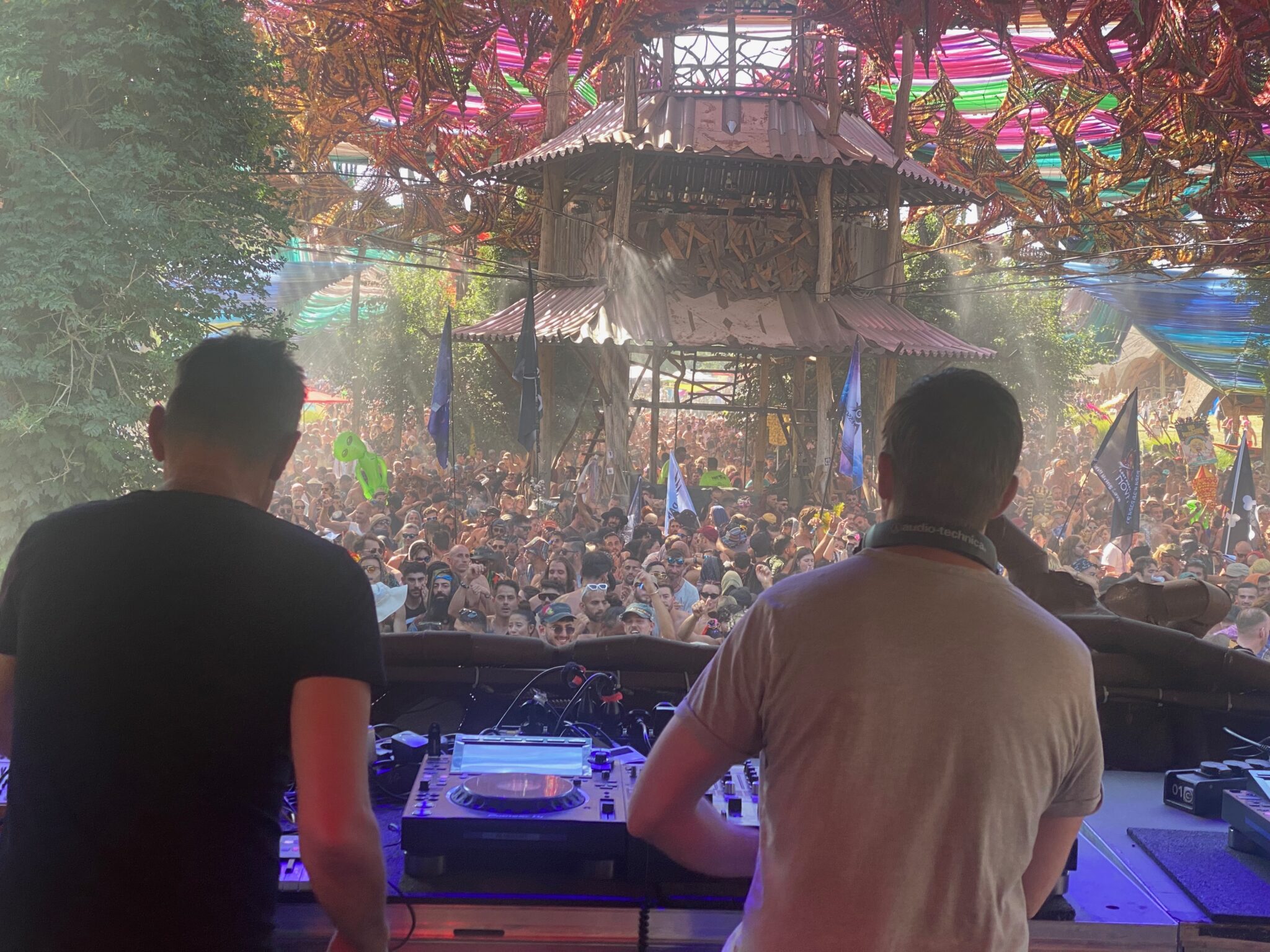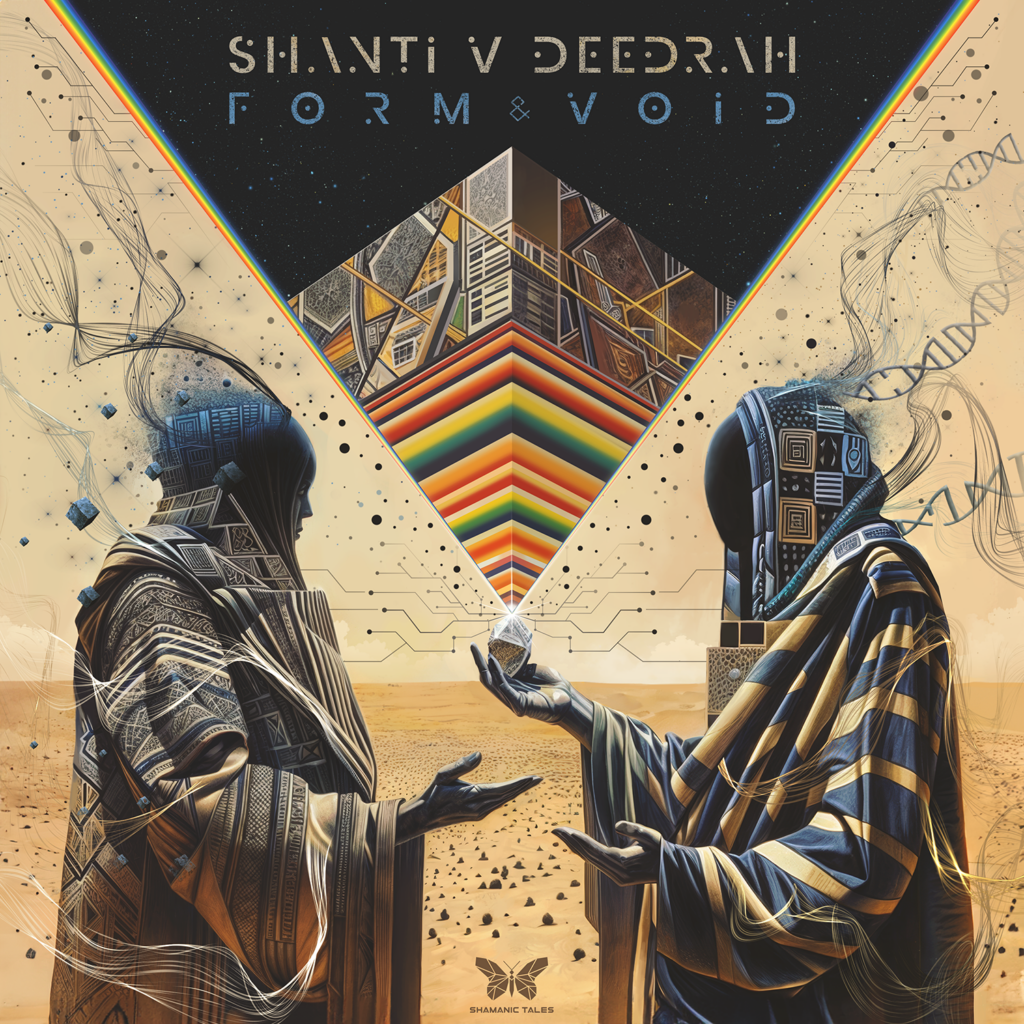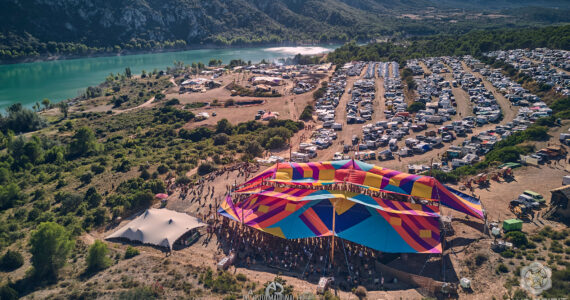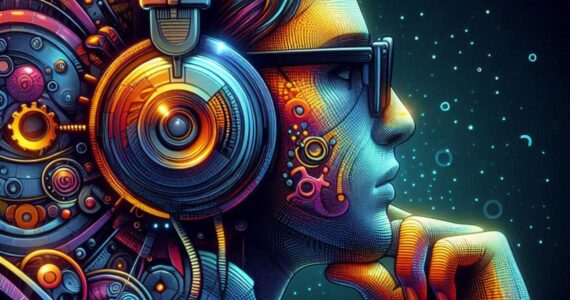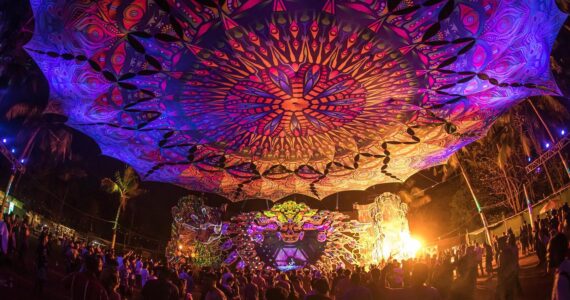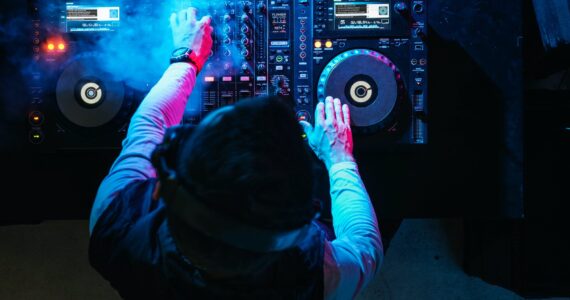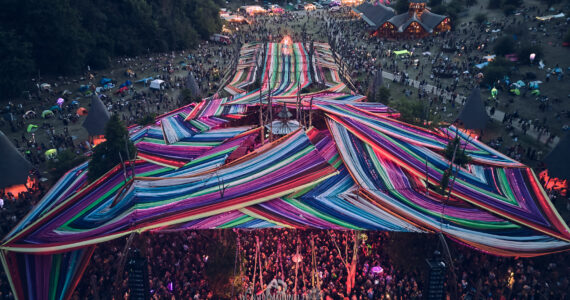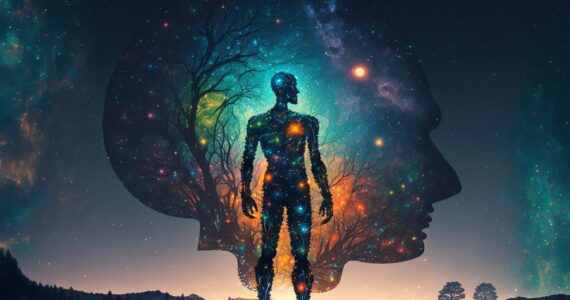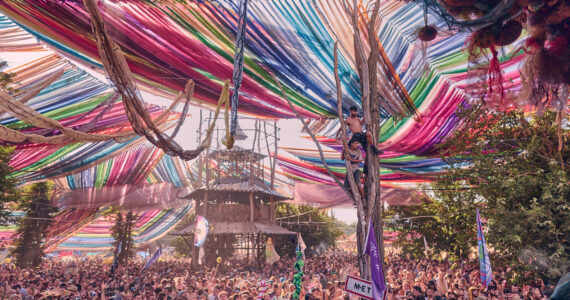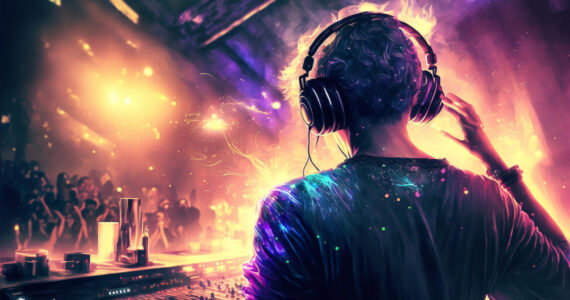Shanti V Deedrah – Form & Void – New album & Interview
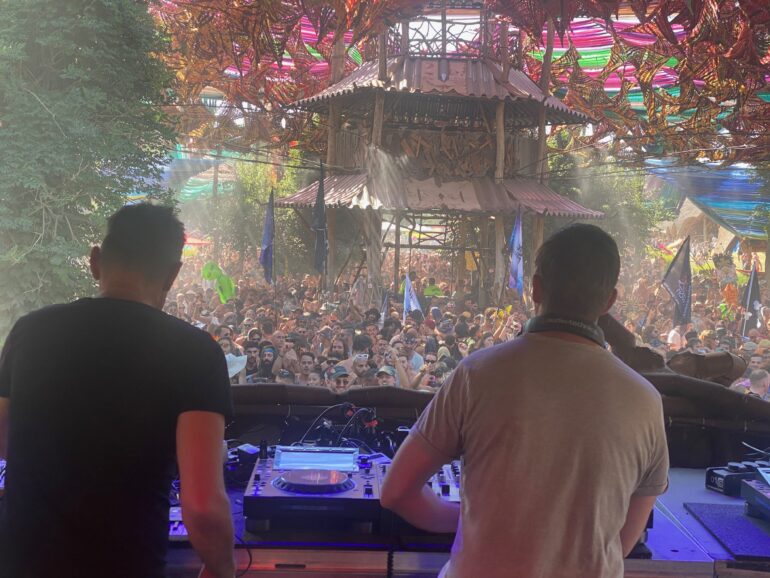
Shanti V Deedrah – Form & Void – New album & Interview
We hooked up with veterans Shanti and Dado, both with a long and very rich history in our psytrance culture in multiple projects over few decades. Under their collaborative project – Shanti V Deedrah – they have just released their new album – Form & Void – on Shamanic Tales Records. We chat about their long psytrance journey, the new album and about their way of making music.
Listen to Shanti V Deedrah – Form & Void album while you read!
You are both real veterans of this culture. Tell us how you found yourselves here?
Shanti: I was introduced to this music in the 90’s by my older brother Riktam. He went to Goa with his partner Bansi and started DJing and producing and formed the band GMS.
I loved the music as well and started making it and DJing when I was 14 years old.
I worked alongside my brother on some of the first GMS productions. I also got to meet and play alongside all the bands of the time like Koxbox, X-Dream, Hallucinogen, Dino Psaras, Total Eclipse, Transwave & others.
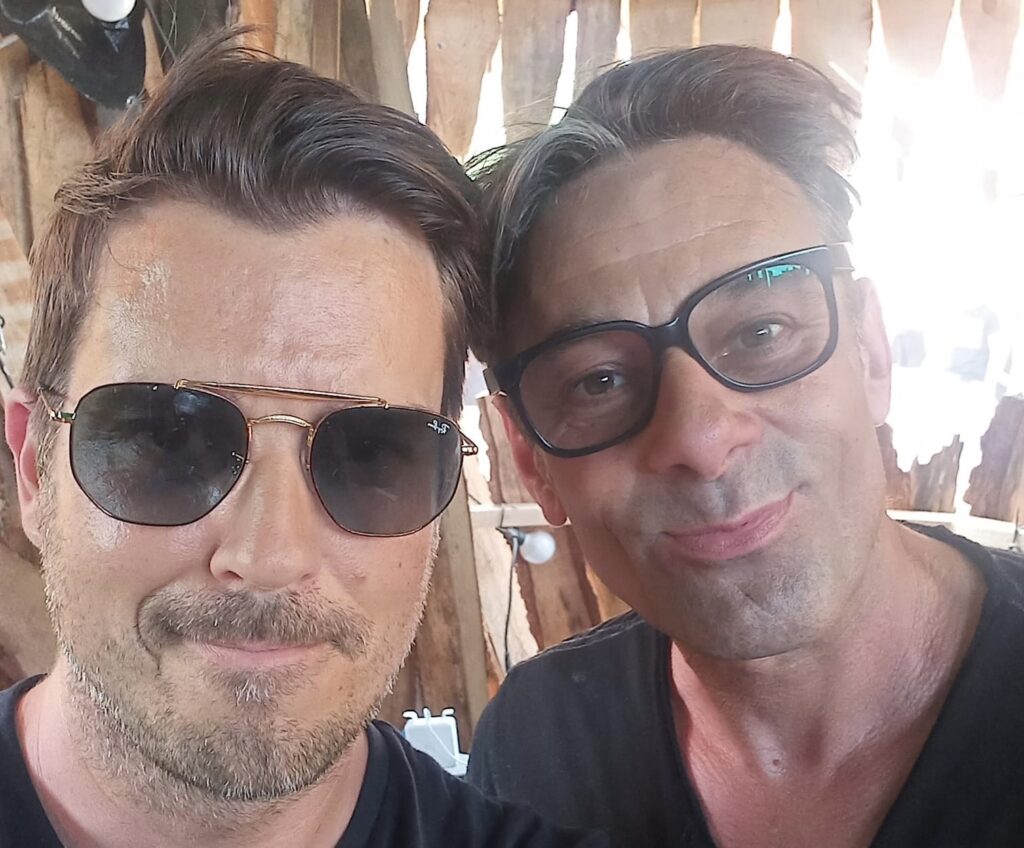
Dado: I started making music with an Atari 1040ST when I was 20, mainly working on original songs or covers of Depeche Mode and Simple Minds. Around 1992/93, Christophe Drouillet invited me to my first rave party, and from that moment, I knew my life was about to change. Shortly after, we began collaborating on music, creating what we referred to at the time as “transcore” – a fast-paced, 180 BPM style of trance.
After discovering Total Eclipse and Juno Reactor live shows, we decided to slow down the tempo, and that’s when Transwave was born. About a year later, I started DJing with DATs. Although I wasn’t the most technically skilled DJ, it allowed me to exchange tracks with other artists and build a collection that would significantly influence my style.
When did you start making music and what do you consider as 3 important key points of your musical journey?
Shanti: When I started making music it was just about having fun and experimenting. It was a passion, every minute of free time I had, I was making music. I was surrounded by friends who had the same interest and we all helped each other and talked about synths and the process of making music.
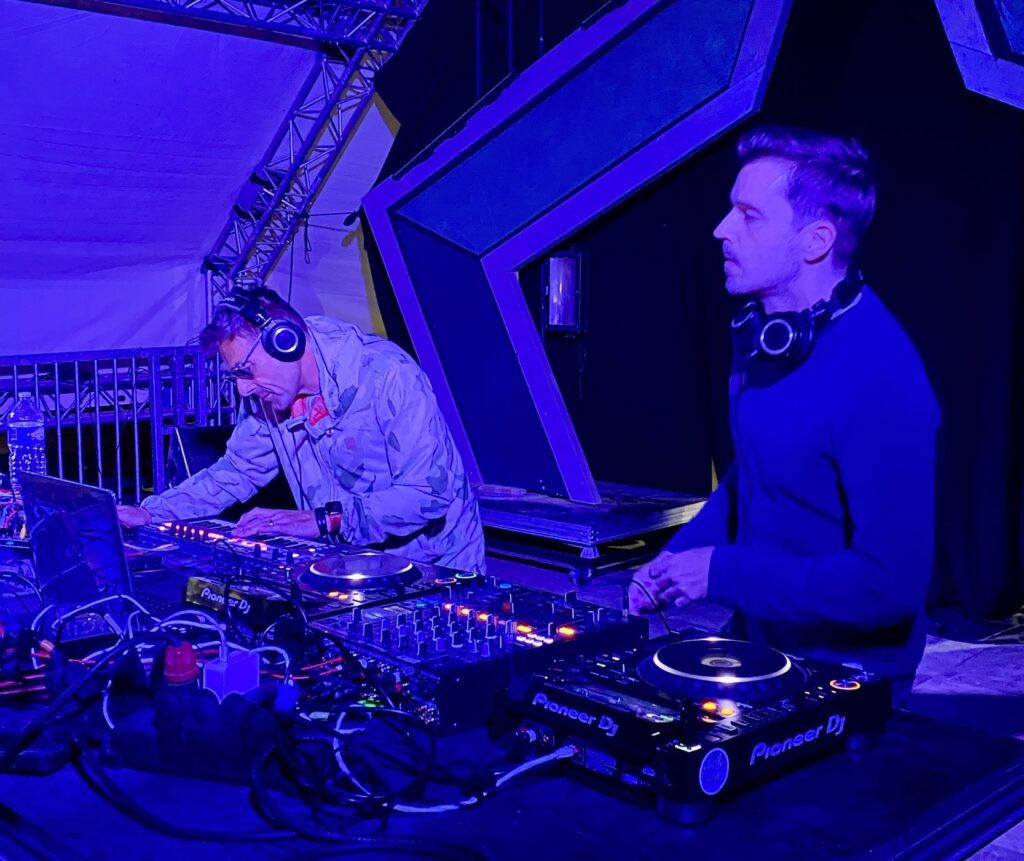
Dado: I was born into a family of musicians and began my classical training at the age of 5, starting with the transverse flute (for 13 years) and later moving on to the piano.
When my dad bought a piano, I began trying to recreate the melodies I loved at the time, like Jean Michel Jarre’s tracks, and I became obsessed with the idea of owning a synthesizer, though I couldn’t afford one until I was 18.
Making music on Cubase with an Atari was another key moment for me. I was also kind of determined to understand how sounds were created, I think, and learning mixing techniques became a priority. I would spend hours reading magazines and try to craft my own presets, and this process took a lot of time compared to how easily information is available today.
Looking back, I’m incredibly grateful to my family for encouraging – perhaps even pushing – me to learn how to read, write, and truly understand the structure of music.
How did you meet and when did you decide to start making music together?
Shanti: Me and Fred met in Ibiza, we both were living there at the time and had a lot of mutual friends. I was always a fan of his and asked him if I could remix a Deedrah track called Hellsonic. He loved the remix and also my original music. We really wanted to do some work together and this led to us together with Dino Psaras starting the band Krome Angels.
Dado: In the 2000s, living in Ibiza was like a hub for us. I’d visit Riktam and Bansi whenever I could, and it was there that I first met Shanti. We quickly became close friends, going out in Ibiza’s clubs and meeting up at parties all over the world. I was really impressed by his productions and often went to his studio to check out his latest tracks. Not long after, we formed Krome Angels with Dino, and we’d frequently collaborate even more, working in each other’s studios, sharing the same DAW, and swapping cool samples. After our second Krome Angels album, Shanti and I started writing music as a duo, and it just clicked. Our collaboration was highly effective and productive – our skills complemented each other perfectly without overlapping.
New album – Form & Void – on Shamanic Tales Records – tell us a bit about it and what does the name mean?
Shanti: The most important thing was to love every single track on the album and be proud of the music, to work on it until you absolutely love it and have fun in the process.
To take everything we have learnt along the way over many years and some of our maybe dated sensibilities and create something modern but with an influence from our past.
Dado: It now takes us longer than usual to write new tracks because we’re focused on creating something that we’ll be satisfied with in the long run, while also striving to avoid repeating ourselves as artists.
Get Shanti V Deedrah – Form & Void album: https://shamanictales.fanlink.tv/SVD
How did you become part of Shamanic Tales?
Shanti: We have been friends with Astrix for a very long time and loved his music since the beginning and we have always been very encouraging to one another. When we heard he started up this label we wanted to be a part of it alongside all the other fantastic artists on the label.
Dado: I think they appreciate that we’re always creating new music. It feels great to be part of the top label for this genre.
What is your creative process?
Shanti: It varies, sometimes I just fiddle around on the eurorack and get a sound and from that I build the track around that sound, other times I start with a bassline and go from there, or sometimes a melody or chord progression. Both me and Fred start tracks and then we keep sending them back and forth until it’s done.
Dado: We have a shared folder called the “Idea Folder,” where we store sketches of tracks, interesting samples, MIDI lines, and more. Since we both use the same DAW (Bitwig) and have a similar list of plugins, sharing projects between us is super easy. A track in progress can go back and forth between our studios for weeks before it’s finished. We often test tracks in sets and then return to the production phase based on how they perform or sound. We have countless tracks that ended up going nowhere, but sometimes we repurpose rejected ideas, beats, or basslines in new projects, especially because Bitwig makes it so effortless to do.
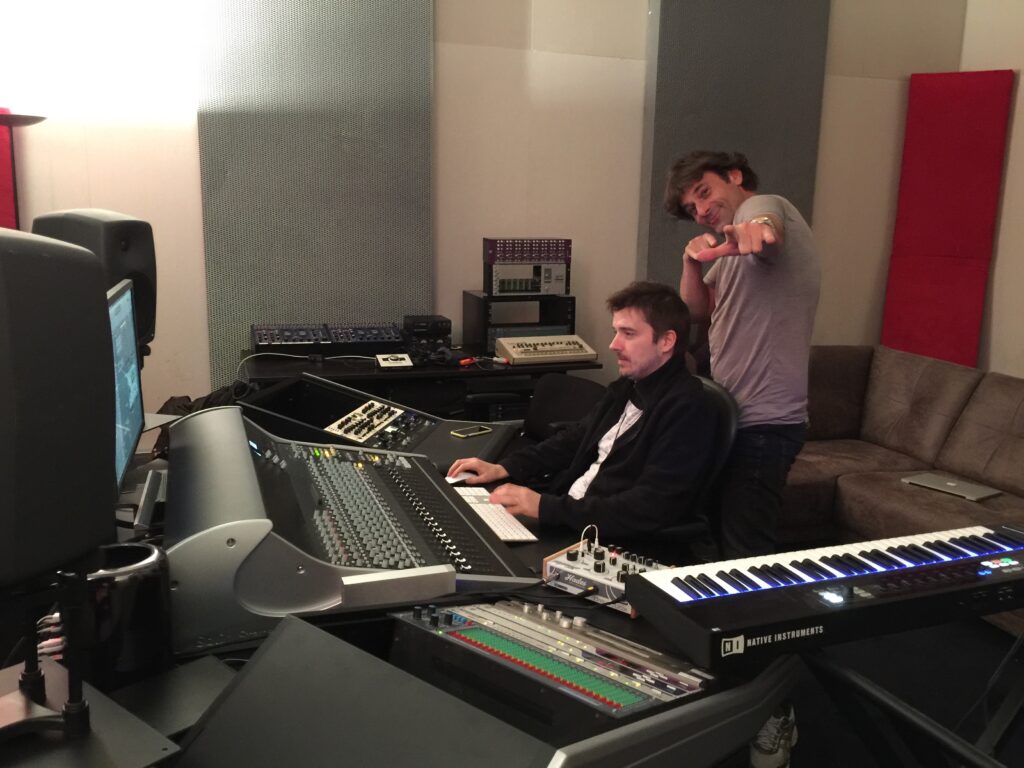
Tell us a bit about your studios set up?
Shanti: I use a Windows PC with Bitwig and use a lot of Eurorack stuff.
Dado: It’s a constant evolution. We primarily work on Windows, but I also have a Mac for my film projects. We try to hold on to the gear we like and sell what doesn’t suit us, often exchanging equipment as well. Shanti is based in Amsterdam, while I’m in Normandy, France. Every morning, we call each other to plan out what we need to accomplish for the day. When we’re on tour, we sometimes work on laptops with a small USB keyboard and portable speakers, and that’s often when some quick, great ideas come together. Whenever possible, I head to Amsterdam – it’s a fantastic place for making electronic music!
One electronic music track that you consider a significant influence on your development as musicians and producers?
Shanti: X-Dream – Psychomachine and Hallucinogen – Deranger are 2 of my all time favorite classics.
Dado: I’d choose “As a Child I Could Walk on the Ceiling” by The Delta! We’re huge fans of Marcus – he really redefined what a trance bassline can be!
Future plans for Shanti V Deedrah and for you personally?
Shanti: We plan on further develop our style and changing things up a bit to keep things fresh and fun in the studio, keep exploring Eurorack format since there are so many combinations possible.
Personally, stay fit and healthy so I can continue to travel and play gigs as long as possible.
Dado: We’re really excited to play the new album tracks, because while creating them is one thing, seeing them work on the dance floor is another level of satisfaction. We already have a lot of new material in the works, including remixes and original tracks. I think we’re aiming to move away from the typical psytrance formula, even though it’s a big leap. On a personal note, I’m trying to find the right balance between work, staying active, travelling, and spending time with my family.
Read our interview with GalactiCode: https://trancentral.tv/2024/09/galacticode-music-is-the-all-around-intergalactic-code/

